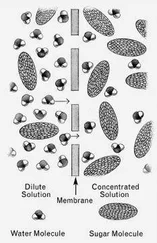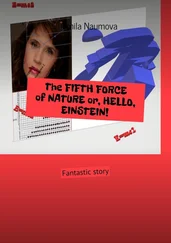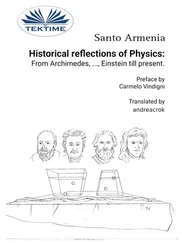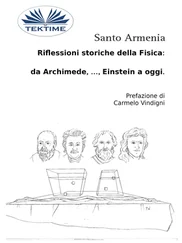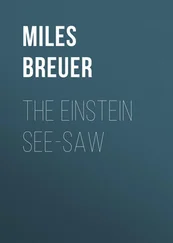He turned the Stare on George again, his gaze seemingly focused some distance behind the remote’s head. This lasted for what seemed a full minute.
George waited for what he had learned was the appropriate length of time, enduring the Stare as he patiently monitored the seconds on the telepresence chronometer floating at the upper right of his field of view. Finally he spoke. “You’re the LEM spokesman, Jake,” he said quietly. “You need to look at the data on this thing yourself. If you don’t, you aren’t doing your job.”
Jake’s frown deepened. “George, you’re wasting my time,” he said. “You’re looking at a cosmic ray or a fission fragment or some glitch in the detector electronics and trying to make it into something important. Face it, George. If it doesn’t conserve energy, it isn’t physics.”
“At least think about it, Jake,” said George. “Let’s not get too hung up on conventional wisdom. There is a possible mechanism. I have a theorist friend who suggested…”
“George… No! You’re wasting my time,” Jake said, his voice smooth but very deep and low.
“Okay, Jake,” said George, “but I think it’s important. I’m going to follow up on it, and I’m going to use LEM resources.”
Jake uttered a deep sigh. “Just what do you want to do with this wonderful magic event you’ve discovered, George?”
“I’ll use processor time to do a detailed scan of all the event tapes to see if there are any more like it that the anomaly system missed. And I want to retrain the neural net of the event-trigger to be more sensitive to anything similar in the next run. Jake, I have a feeling about this event. It’s important.”
Jake frowned. “You don’t have enough to do already, George? You’re in need of new projects? You don’t have enough to do in discovering why our vertex detector is dying? The tens of millions of dollars invested in that vertex detector are going down the drain while you pursue fantasies. You need to retrain the trigger, too? That’s a month’s work, George. Every time we try to retrain that trigger network, it does ugly things to us. It’s working now, George. Leave it alone!”
“Jake,” said George, “I want you to look at this event. Please. It’s important.”
“No!” Jake shouted. “Absolutely not. I have better things to do. You have better things to do. The whole damned experiment is collapsing around us, and you want to repeal conservation of energy. Get some sleep, George. Tomorrow this will all seem like a bad dream.”
Jake looked at his watch, then moved his hand in a dismissive manner. “I must go, George. I have to go talk to Roy again. Now those SDC imbeciles have done something to the sextupoles that is destroying our beam quality. We have the next group meeting on Monday morning, George. Be there, with your report on your progress toward understanding and fixing the pixel problem and without this event you found in the garbage can.” He spun on his heel and stalked out of the room.
George angrily wheeled the remote, its motors howling, to the nearest charging dock and disconnected.
ALICE REMOVED THE MAGIC GLASSES THAT HAD BEEN patched into George’s, placed them in their holder, and looked across the office at him.
His face was red, and he seemed to be breathing deeply. “That was Jake at close range,” George said finally.
Alice had been a passive participant in the confrontation. She was embarrassed at what she had just witnessed. She didn’t understand why George had approached Jake as a remote when he had such an important matter to discuss, or why he had included her as an observer. During the past few days, she had interviewed a number of physicists from LEM and other groups at the SSC. She’d found a wide range of viewpoints on many topics. But about Jake there were only two common views: Jake was a great world-class physicist who would soon win a Nobel prize, or Jake was a madman who was leading his group to disaster. She nodded finally. “Is he always like that? How do you stand it?”
“You have to understand the culture of particle physics,” George answered. “We’re probing the most fundamental aspects of nature, and the intellectual appeal of that attracts some of the best minds in physics, as well as some of the strongest personalities. There are many differences of opinion about how the physics should be done, many violent disagreements. Over the years a method of resolving differences has evolved, a way of making a firm decision on what path to take, so we can put that decision behind us and move forward. It’s called the ‘shoot-out.’”
Alice laughed with delight. “Like the Old West. It sounds quite appropriate for Texas,” she said. Had George deliberately provoked this shoot-out with Jake? Had he expected to win? He certainly hadn’t gone about it in the right way, if he had wanted to win Jake over. Perhaps he had wanted to get Jake to take a position against investigating the Snark.
“We even do it in Geneva, California, and Illinois,” George said. “It is a bit like the Old West, except that the shooting is done with ideas and logic instead of bullets. When there is a controversy, the laboratory director will call a big meeting. The groups in contention select spokesmen who present their best arguments in support of their case. The physicists in the audience ask questions, often very nasty ones. This can go on for many hours or even days. Finally the director, sometimes with the advice of an executive committee, makes the decision. After that decision is made, the question is considered settled, and work goes on.”
Alice was puzzled. “I don’t see what that has to do with Jake and what I just saw,” she said.
“I was coming to that part,” said George. “What you must understand about Jake is that he is the absolute master of the shoot-out. He’s extremely intelligent. He can go into a library with absolutely no knowledge of a technical subject and emerge a few hours later with complete mastery of it. His presentations are flawless. After the first minute, he’ll have an audience of tough-minded physicists eating out of his hand. His responses to hostile questions are lightning-fast and subtly calculated to make the questioner appear absurd, but without any appearance that Jake has ridiculed him. Most of Jake’s adversaries in shoot-outs never know what hit them. Sometimes it’s a few days later before you realize that the other guy in the shoot-out perhaps had a pretty good idea. And by then it’s too late.”
“I don’t understand,” said Alice. “Why don’t the others see through Jake’s tricks?” Had George provoked the confrontation in private to see what Jake’s response would be?
“Because they are not tricks,” said George. “Jake really does want to do the best physics in the world, and he’ll sift through the best ideas available, borrowing or stealing where he can, originating where he must, to come up with the best course of action. He’s really good, Alice. That’s why I and the others put up with the personality quirks that come in the same package with his talents.”
Alice began to see the story possibilities in this revelation. “How did Jake get that way?” she asked.
George smiled. “I’ve known Jake a long time,” he said. “We were at SLAC when the SLC was just coming into operation.”
“SLC?” said Alice.
“The SLAC Linear Collider,” said George. “That was an American attempt to do some quick physics with Z and W bosons and skim off the cream before the LEP Collider at CERN started running in the late 1980s. That didn’t work, but it did get Ph.D.s for me and Jake.
“Anyhow, we knew each other at SLAC. Jake grew up in Taiwan. His family was large and not particularly well off. As a kid he’d collect junk machines and electronics, take them apart, and use the pieces to make things. He liked to make weird electronic gadgets, radios and motion detectors and spark generators. He managed to slip into the United States somehow while he was still in high school and went to the University of Minnesota on scholarships while working at odd jobs in Minneapolis for extra support.
Читать дальше




